 Though the earth and all inferior creatures be common to all men, yet every man has a property in his own person. This nobody has any right to but himself. The labour of his body, and the work of his hands, we may say, are properly his. Though the earth and all inferior creatures be common to all men, yet every man has a property in his own person. This nobody has any right to but himself. The labour of his body, and the work of his hands, we may say, are properly his.  Principles of Political Economy - Page 18by George Poulett Scrope - 1833 - 457 pagesFull view Principles of Political Economy - Page 18by George Poulett Scrope - 1833 - 457 pagesFull view - About this book
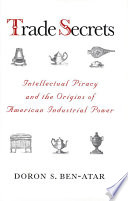 | Doron S. Ben-Atar - Business & Economics - 2008 - 304 pages
...liberalism and individualism, John Locke: "every Man has a Property in his own Person. This no Body has any Right to but himself. The Labour of his Body, and the Work of his Hands, we may say, are properly his. Whatsoever then he removes out of the State that Nature hath provided,... | |
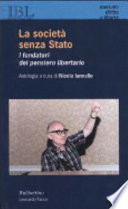 | Nicola Iannello - Political Science - 2004 - 300 pages
...Press, Cambridge 1988, § 27, pp. 287-288: «every Man has a Property in his own Person. This no Body has any Right to but himself. The Labour of his Body, and the Work of his Hands, we may say, are properly his. Whatsoever then he removes out of the State that Nature hath provided,... | |
 | Lee Ward - History - 2004 - 478 pages
...infetior Creatures he common to all Men, yet every Man has a Property in his own Petson. This no Body has any Right to but himself. The Labour of his Body, and the Work of his Hands, we may say, are properly his. (II:27) The implications of Locke's self-ownership argument are twofold.... | |
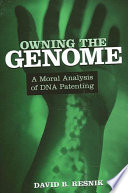 | David B. Resnik - Science - 2012 - 251 pages
...inferior creatures, be common to all men, yet every man has property in his own person: this no body has right to but himself. The labour of his body and the 'work of his hands, we may say, are properly his. (Locke [1764] 1980, 19, chap. 5, sec. 27) As noted in chapter 3, although... | |
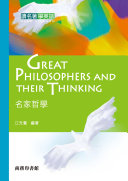 | 江先声 - 2004 - 127 pages
[ Sorry, this page's content is restricted ] | |
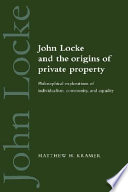 | Matthew H. Kramer - Business & Economics - 2004 - 368 pages
...inferior Creatures be common to all Men, yet every Man has a Property in his own Person. This no Body has any Right to but himself. The Labour of his Body, and the VCbrk of his Hands, we may say, are properly his. Whatsoever then he removes out of the State that... | |
 | Janice Carlisle - Literary Criticism - 2004 - 238 pages
...importance of CB Macpherson's conception of "possessive individualism": as Locke puts it, when a man owns himself, "the Labour of his Body, and the Work of his Hands," he becomes an individual.1 By the i86os for some men, however, such simple bases for individuation... | |
| |